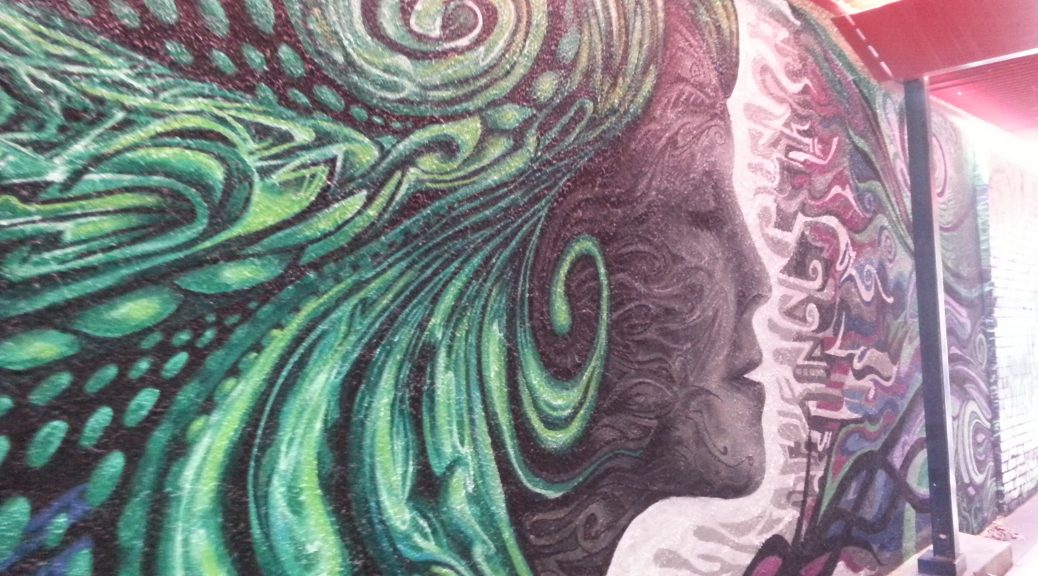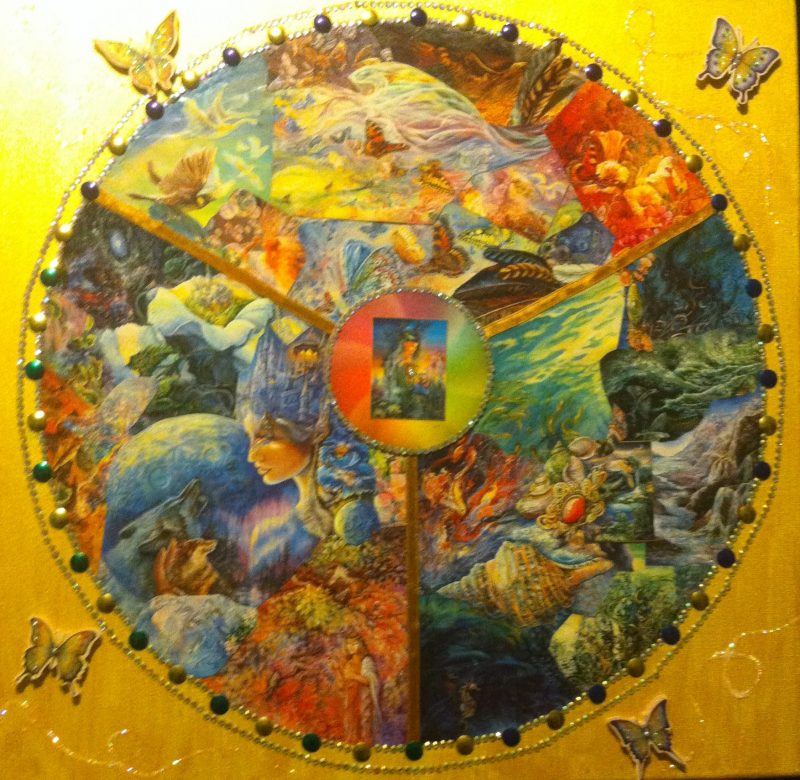
The Introvert Paradox
When I was a child, I worked out pretty early on that I didn’t relate to the world the way the majority of people did. I didn’t like crowds, or too much noise. While I wanted party invitations so I wouldn’t feel excluded, I didn’t want to actually go. My happy place was at home, reading a book, in the quiet. Big group get-togethers were a nightmare – I much preferred one-on-one conversations. And I wasn’t good at chit chat. I wanted my conversations to be meaningful and authentic. People didn’t seem to want to have discussions at the deep level I wanted. They didn’t seem to notice or think about the same things I did. I felt things ‘too deeply’, strongly affected by what happened to myself and others. People often labelled me shy, but in reality I was highly introverted.
Perhaps if I’d had parents who recognised my fundamental nature and didn’t try to force me to be different, I would have been able to accept who I was. But at home and in the outside world I was constantly told I was ‘too serious’ and ‘too sensitive’. I was often forced into situations that I found deeply uncomfortable. I quickly learned there was something fundamentally wrong with me.
When I went to university I studied social work. I learned I was a very empathic listener, but I hated the role plays that were a big part of my training. Once I started work my sensitivity was valuable in working with people who were at a crisis or low point in their lives. But I would end my workdays completely exhausted, overwhelmed by other people’s emotions. I knew I wouldn’t be able to stay in the profession long term as the emotional cost was too high.
The book that made a difference
In 2013 I came across a newly published book, Quiet, by Susan Cain. This book was a revelation for me. It grabbed me from the first blurb, when I read:
 ‘Sensitivity and seriousness are often seen as undesirable. Introverts feel reproached for being the way they are.’
‘Sensitivity and seriousness are often seen as undesirable. Introverts feel reproached for being the way they are.’
That was me.
Cain’s book outlines how the brain chemistry of an introvert is different to that of an extrovert. Research shows that sensitivity, the tendency to notice more and to feel and think deeply are all hardwired into the introvert brain (p. 103). Yet society does not reward or even cater to introverts. They often feel like fish out of water. Cain made me realise there is nothing ‘wrong’ with having an introvert brain. (If you want to know more, start with her TED talk – follow the link.)
From the age of eight I wanted to be a writer, and the more I understood my nature, the more I thought this was a job that would suit me. (Which is not to say I chose it for that reason – it chose me really, because I always had stories running around inside my head, and I HAD to let them out, but it helps to find work that suits your personality.) Alongside my sensitivity, I was highly imaginative, and could easily work on my own for long periods of time. At school I was always daydreaming, creating places and characters and stories.
I achieved my dream of being a published author in June 2017. And almost immediately descended into a pit of despair. Because somehow being an author now seems to require a high degree of extroversion.
Extroversion Required
I don’t have a problem with giving talks or being on panels. I have a background in improvised theatre, and as someone who thinks deeply about all sorts of things I have a lot of ideas I can talk about. So I actually love that side of being ‘an author’. What I have a problem with is the regular social media socialising and the requirement to be a marketing person.
Authors are constantly told now that they must have a strong social media presence in order to sell their books. They need to join and actively engage in numerous groups and platforms. The risk is, if you do this just to sell books, you’re not being authentic and you are using the people around you. Social media can allow for authentic and meaningful engagement. I wouldn’t want to do it otherwise. But that takes time. I run my own editing business and parent two teenagers whilst being an author, so time is in short supply. The more time I spend on social media, the less I have to write or be with my family. And as an introvert, I recharge my batteries through time alone. So social media is a constant weight on my shoulders.
As for marketing, this requires an extrovert approach. You need to be willing to draw attention to yourself and talk up your author ‘brand’ and your books. This might be in person, such as at a market stall, on social media, or through writing copy. And I really, really struggle with this, for a range of reasons, but fundamentally because it’s like asking a fish to climb a tree – it goes against my introvert nature to the point where I feel sick and anxious. I am often torn between the expectation that I do ‘marketing’, and my overwhelming need to run screaming in the other direction. I could do a whole other blog post about the damage that is done to introverts by expecting them to behave like extroverts but I’m already over my word count so I’ll come back to that.
So where is the paradox?
Well, the thing is, I think my introvert nature is an asset to my actual writing. My hypersensitivity – my tendency to notice things others don’t and to think and feel deeply about them – all help me paint my stories with vivid colours. I think these personal characteristics make me a better writer.* But in the last year I’ve spent a lot of time sobbing quietly to myself at the realisation that either I have to actively undertake marketing, the mere thought of which escalates my anxiety to ridiculous levels, or come to terms with the fact that my stories won’t be noticed in a book market that is crowded with authors going ‘look at me!’.
I definitely haven’t found any answers to the paradox. All I know is that some days I can live with the tension between who I am as an author and who I’m supposed to be, and other days I can’t. But if you’re an introvert author, please know you’re not alone. Maybe we can have a deep and meaningful chat in a quiet corner at a writers festival some day soon.
* I am not comparing myself to anyone else here. Just to myself. I am not in any way putting down extroverts or saying I’m in any way better. And there you have a classic example of the introvert tendency to worry about every single thought that comes out of my brain, and whether I’ve upset anyone and… argh!!! Overthinking is definitely an introvert thing.

 Sarah Elwell lives quietly at the edge of the world, between a river and the sea. Her books are made of fairytale shadow, old magical songs, and dreams. You can find them and her other writing, including her Heroine’s Journey template, through her
Sarah Elwell lives quietly at the edge of the world, between a river and the sea. Her books are made of fairytale shadow, old magical songs, and dreams. You can find them and her other writing, including her Heroine’s Journey template, through her  spirituality. He’s the wild god who is never what he seems to be. He brings change, and it appears to be a trick or a storm at the time, but it’s always done with Love. I am not like him but I do resonate with his energy because as a storyteller it’s my job to bring change to ideas, characters, and readers.
spirituality. He’s the wild god who is never what he seems to be. He brings change, and it appears to be a trick or a storm at the time, but it’s always done with Love. I am not like him but I do resonate with his energy because as a storyteller it’s my job to bring change to ideas, characters, and readers. Remember: life online is curated. What you see and what reality is may be two different things. No one shares their terrible reviews, only their great ones. Photos may have a different story behind them than the one you imagine. Here’s my book, cover out, right near George RR Martin and next to Garth Nix. Prime placement and multiple copies – makes it look like a best seller. I had a couple of authors ask me ‘how on earth did you achieve that?’, as though I had hit some magic jackpot. Partly it was luck – since my surname is Nightingale it fits nicely alphabetically. However, the reality is, right after I snapped the picture, I took a bunch of these books home because they were only on the shelf for a writers festival.
Remember: life online is curated. What you see and what reality is may be two different things. No one shares their terrible reviews, only their great ones. Photos may have a different story behind them than the one you imagine. Here’s my book, cover out, right near George RR Martin and next to Garth Nix. Prime placement and multiple copies – makes it look like a best seller. I had a couple of authors ask me ‘how on earth did you achieve that?’, as though I had hit some magic jackpot. Partly it was luck – since my surname is Nightingale it fits nicely alphabetically. However, the reality is, right after I snapped the picture, I took a bunch of these books home because they were only on the shelf for a writers festival. I found the term ‘ecosystem’ a bit strange, but it’s basically the ecosystem that exists in the creative mind. However, I love cycles as a conceptual tool. I’ve spent many years using and teaching Action Research, which is a cyclical process. So I found the notion of the Creative Ecosystem, which is cyclical, really easy to grasp. The idea is that there are four stages to the creative process: seeing, thinking, making and curiosity. Like the action research cycle, these can happen in any order, but they are all necessary. I know in my writing a lot of ideas are triggered by asking ‘what if?’ For the Tales of Tarya, it all began when I asked, what if you did enter another world when you took on a character onstage? The seeing part, for me, is when you watch the world, or do research, and take in what you are discovering. Years of doing theatre meant I knew how a show comes together and what it takes to perform. The thinking part is that stage in the process where you tease your ideas out, make links, ask further questions to develop your story. I think this is the hardest part for me. I can feel like I’m trudging through quicksand. Finally, comes the making, the stage we tend to think of as our creative practice. Yet as this cycle shows, this is only one stage in the process.
I found the term ‘ecosystem’ a bit strange, but it’s basically the ecosystem that exists in the creative mind. However, I love cycles as a conceptual tool. I’ve spent many years using and teaching Action Research, which is a cyclical process. So I found the notion of the Creative Ecosystem, which is cyclical, really easy to grasp. The idea is that there are four stages to the creative process: seeing, thinking, making and curiosity. Like the action research cycle, these can happen in any order, but they are all necessary. I know in my writing a lot of ideas are triggered by asking ‘what if?’ For the Tales of Tarya, it all began when I asked, what if you did enter another world when you took on a character onstage? The seeing part, for me, is when you watch the world, or do research, and take in what you are discovering. Years of doing theatre meant I knew how a show comes together and what it takes to perform. The thinking part is that stage in the process where you tease your ideas out, make links, ask further questions to develop your story. I think this is the hardest part for me. I can feel like I’m trudging through quicksand. Finally, comes the making, the stage we tend to think of as our creative practice. Yet as this cycle shows, this is only one stage in the process. suggest you wander from the beaten path in your reading habits this year?
suggest you wander from the beaten path in your reading habits this year?
 writing in the first place. The answer lay in the wonderful books that I’d read in primary school, and the incredible authors who had transported me to other worlds. No matter what some jaded academic said, I knew stories matter. They made a difference to me as a child. So I used the healing power of stories to restore my wonder and to reawaken my creative imagination. I visited old friends, like
writing in the first place. The answer lay in the wonderful books that I’d read in primary school, and the incredible authors who had transported me to other worlds. No matter what some jaded academic said, I knew stories matter. They made a difference to me as a child. So I used the healing power of stories to restore my wonder and to reawaken my creative imagination. I visited old friends, like 
 what this person’s opinion is before putting forward their own? Does all conversation stop when this person opens their mouth? Sometimes it’s not quite that obvious – sometimes it can be a tug of war where that person believes in their guru-ness a little more than others, but it still makes for a difficult group dynamic. Every member of the group should be equally valued for their contributions and writing ability.
what this person’s opinion is before putting forward their own? Does all conversation stop when this person opens their mouth? Sometimes it’s not quite that obvious – sometimes it can be a tug of war where that person believes in their guru-ness a little more than others, but it still makes for a difficult group dynamic. Every member of the group should be equally valued for their contributions and writing ability.



 r page, jumping into Twitter and exploring other social media platforms. She got active chatting in groups, she did various ‘launches’ of her presence, she generally tried to be noticed. And in the process, she swiftly built up a reputation.
r page, jumping into Twitter and exploring other social media platforms. She got active chatting in groups, she did various ‘launches’ of her presence, she generally tried to be noticed. And in the process, she swiftly built up a reputation.